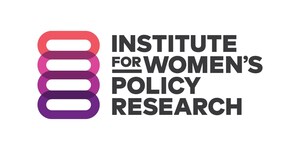Job Growth Slows for Women and Men in March
WASHINGTON, April 6, 2012 /PRNewswire-USNewswire/ -- According to an analysis of the April employment report from the U.S. Bureau of Labor Statistics by the Institute for Women's Policy Research (IWPR), job growth slowed in March with 120,000 jobs added to nonfarm payrolls. In March women gained 38,000 jobs (about one-third of all jobs added) and men gained 82,000. Women's employment growth was aided by strong growth in health care (26,000 jobs added overall) and food service and drinking places (36,900 jobs added overall). The gap between women's and men's employment in March is 1.9 million.
The unemployment rates remained largely steady from February to March, declining for women aged 16 and older (to 8.1 percent from 8.2 percent), and unchanged for men (8.3 percent). As of March 12.7 million workers remain unemployed.
In the last year, from March 2011 to March 2012, of the 1.9 million jobs added to payrolls, 635,000 or 33 percent were filled by women, and 1,264,000 or 67 percent were filled by men. Since October of 2009 when men's and women's total jobs numbers were virtually equal, women have gained 697,000 jobs, whereas men have gained 2,592,000, more than three times as many jobs as women. Since June 2009 when the recession officially ended, men have gained 88 percent (2.0 million) while women have gained only 284,000 (12 percent) of the jobs added to payrolls—primarily because job growth for women lagged men's by nearly a year.
Women have regained nearly one out of three (881,000 or 32.4 percent) of the total jobs they lost in the recession (2.7 million from December 2007 to the trough for women's employment in September 2010, which occurred more than one year after the recession officially ended). The picture looks somewhat better for men: men have gained 45.0 percent (2.7 million) of the jobs they lost since December 2007 (6.0 million).
In the first quarter of 2009, when President Obama began his term, employment was still falling steeply. With the passage of the President's American Recovery and Reinvestment Act in February 2009, job losses abated and turned to job growth in early 2010. In 2011 and 2012 both women and men have seen job gains. There is still a jobs deficit relative to before the recession, however, which was the most severe since the 1930s. At the pace of job gains in March (120,000), it would take until late 2020 just to employ those currently looking for work without considering additional workers entering the labor force.
About the Institute for Women's Policy Research
IWPR conducts rigorous research and disseminates its findings to address the needs of women and their families, promote public dialogue, and strengthen communities and societies. IWPR is a 501(c)(3) tax-exempt organization that also works in affiliation with the women's studies and public policy programs at The George Washington University.
SOURCE Institute for Women's Policy Research
WANT YOUR COMPANY'S NEWS FEATURED ON PRNEWSWIRE.COM?
Newsrooms &
Influencers
Digital Media
Outlets
Journalists
Opted In





Share this article